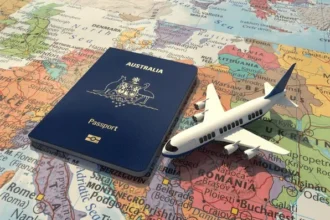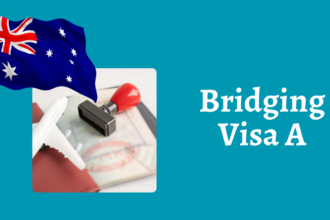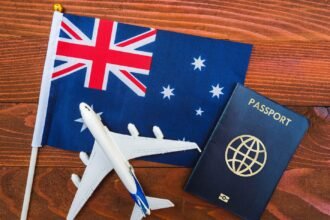The hospitality industry in Australia offers a wide range of job opportunities for international workers. Given Australia’s vibrant tourism sector, the demand for skilled hospitality professionals remains high. For many foreign nationals, finding hospitality jobs with visa sponsorship is a viable pathway to working and eventually settling in Australia.
This comprehensive guide will explore how to find hospitality jobs with visa sponsorship in Australia, the types of visas available, key requirements, and practical tips to boost your chances of securing employment.
Why Consider Hospitality Jobs in Australia?
Australia’s hospitality industry is one of the largest in the country, encompassing roles in hotels, restaurants, cafes, resorts, catering services, and tourism businesses. Working in hospitality in Australia can be a rewarding experience for several reasons:
- High Demand for Workers: With tourism as a significant contributor to the economy, there is a continuous need for skilled hospitality staff, particularly in popular cities like Sydney, Melbourne, Brisbane, and tourist destinations such as the Gold Coast and Great Barrier Reef.
- Career Growth: Hospitality jobs provide numerous opportunities for career advancement, from entry-level positions to management roles.
- Competitive Wages: The industry offers competitive salaries, with wages generally set by industry awards, ensuring fair pay for hospitality workers.
- Cultural Exchange: Working in hospitality allows international workers to interact with diverse cultures, enhancing their global skills and professional networks.
Understanding Visa Sponsorship for Hospitality Jobs
Visa sponsorship is essential for most foreign workers wishing to work in Australia. It allows employers to sponsor foreign nationals for work in their businesses. Here are the main types of visas related to hospitality jobs:
1. Temporary Skill Shortage (TSS) Visa (Subclass 482)
The TSS visa is one of the most common pathways for skilled workers, including those in the hospitality sector, to work in Australia. It allows employers to sponsor foreign workers to fill positions they cannot find suitable Australian citizens or permanent residents for.
- Eligibility: The role must be on the relevant Skilled Occupation List. Common hospitality roles on this list include chefs, cooks, restaurant managers, and hotel managers.
- Duration: This visa can be granted for up to four years, depending on the occupation and the worker’s skills.
- Pathway to Permanent Residency: Some TSS visa holders may become eligible for permanent residency through the Employer Nomination Scheme (ENS) visa (Subclass 186) after working for their sponsor for a specified period.
2. Working Holiday Visa (Subclass 417) and Work and Holiday Visa (Subclass 462)
These visas are designed for young people (aged 18 to 30, or 35 for some countries) who wish to travel and work in Australia temporarily.
- Duration: Both visas allow holders to stay and work in Australia for up to 12 months, with the option to extend the visa if they meet specific criteria.
- Hospitality Jobs: Working holiday visa holders often find employment in hospitality, particularly in regional areas where there is a higher demand for workers.
- Sponsorship: While these visas do not require sponsorship initially, workers who perform well may be offered sponsorship by their employers to transition to a TSS visa.
3. Employer Nomination Scheme (ENS) Visa (Subclass 186)
The ENS visa allows Australian employers to sponsor skilled workers for permanent residency. It’s suitable for hospitality professionals who have already worked in Australia on a temporary visa and have the relevant skills and experience.
- Eligibility: Applicants must have a relevant skilled occupation and meet specific work experience and English language requirements.
Step-by-Step Guide to Finding Hospitality Jobs with Visa Sponsorship in Australia
Finding a hospitality job with visa sponsorship requires a strategic approach, from job searching to navigating visa processes. Here’s how to go about it:
Step 1: Research the Hospitality Industry in Australia
Before beginning your job search, research the Australian hospitality industry to understand its dynamics, the types of roles available, and the skills in demand. Some key areas to focus on include:
- Popular Hospitality Hubs: Major cities like Sydney, Melbourne, and Brisbane have a high concentration of hotels, restaurants, and cafes. Additionally, tourist hotspots like the Gold Coast, Cairns, and the Great Barrier Reef area offer numerous hospitality jobs.
- In-Demand Roles: Chefs, cooks, restaurant managers, baristas, hotel managers, and front office staff are typically in high demand. Understanding which roles are on the skilled occupation list will help in securing sponsorship.
Step 2: Update Your Resume and Cover Letter for the Australian Market
Having a well-crafted resume and cover letter that align with Australian job market standards is crucial. Here are some tips:
- Australian Resume Format: Australian resumes are typically two to three pages long. Highlight your relevant work experience, skills, and qualifications in hospitality.
- Emphasize Key Skills: Focus on skills in demand in the hospitality sector, such as customer service, food and beverage management, culinary expertise, and proficiency in English.
- Tailor Your Cover Letter: Address the specific requirements of each job you apply for, demonstrating your knowledge of the Australian hospitality industry.
Step 3: Use Job Portals and Recruitment Agencies
Online job portals and recruitment agencies are excellent resources for finding hospitality jobs in Australia. Some of the most popular job search platforms include:
Online Job Portals
- Seek : One of the largest job search platforms in Australia, featuring a wide range of hospitality roles.
- Indeed: Offers listings for various hospitality jobs, including positions with visa sponsorship.
- Jora: A comprehensive job search engine with numerous hospitality job postings.
- Job Bank: A government-run platform where employers often post jobs requiring skilled foreign workers.
Recruitment Agencies Specializing in Hospitality
- Frontline Hospitality: Specializes in hospitality recruitment and can help match international workers with employers willing to sponsor visas.
- Hospoworld: Offers recruitment services in the hospitality sector, including placements for chefs, managers, and front-of-house staff.
- Hays Recruitment: A global recruitment agency with a focus on hospitality roles across Australia.
Step 4: Network Within the Hospitality Industry
Networking is a powerful tool in the hospitality industry. Many job opportunities, especially those involving sponsorship, arise through personal connections and industry contacts.
- Attend Job Fairs and Expos: Hospitality job fairs, such as the Australian Hospitality Expo, are great places to meet potential employers and learn about sponsorship opportunities.
- Industry Events: Participate in hospitality-related events, workshops, and trade shows to connect with industry professionals.
- LinkedIn: Build a professional LinkedIn profile and join hospitality groups to network with employers and recruiters actively seeking international talent.
Step 5: Apply Directly to Employers Known for Sponsoring Foreign Workers
Some hospitality employers in Australia have a track record of sponsoring foreign workers. When applying, target businesses that frequently hire international staff, including:
- Hotel Chains: Major hotel groups like Accor, Marriott, and IHG often sponsor skilled foreign workers for roles like chefs, front office managers, and housekeeping supervisors.
- Restaurants: Renowned restaurants, particularly in cities like Sydney and Melbourne, sometimes offer sponsorships to experienced chefs, sous chefs, and managers.
- Catering and Event Companies: Large catering companies and event management firms also employ skilled foreign hospitality professionals and offer sponsorship opportunities.
Step 6: Highlight Your Willingness for Regional Work
Australian employers in regional areas often face challenges finding local hospitality staff, making them more likely to sponsor foreign workers.
- Focus on Regional Job Listings: Search for hospitality jobs in regional areas using job portals and recruitment agencies.
- Mention Your Flexibility: Highlight your willingness to work in regional or remote locations in your cover letter, as this can increase your appeal to potential sponsors.
Step 7: Prepare for Interviews and Demonstrate Your Value
If shortlisted for a job, be ready for interviews, which may be conducted in person, over the phone, or via video conferencing.
- Research the Employer: Demonstrating knowledge of the employer’s business, services, and clientele can set you apart.
- Showcase Your Skills: Emphasize your hospitality experience, language skills, and any international qualifications that align with the job requirements.
- Discuss Sponsorship: During the interview, be prepared to discuss visa sponsorship openly. Employers familiar with the LMIA process will understand its implications and what is required.
Step 8: Understand the Visa Application Process
If you receive a job offer, your employer will need to sponsor you for a work visa. Here’s what typically happens:
- TSS Visa (Subclass 482): The employer applies to become an approved sponsor and then nominates the foreign worker for the position.
- Required Documents: You will need to provide documents such as proof of qualifications, work experience, and English language proficiency.
- Visa Approval: Upon successful approval, you will receive a visa allowing you to work for the sponsoring employer in Australia.
Tips for Securing Hospitality Jobs with Sponsorship
- Gain Relevant Experience: Employers prefer candidates with experience in the hospitality sector. Gaining work experience in your home country or other countries can make you a more attractive candidate.
- Obtain Relevant Certifications: In Australia, some hospitality roles require specific certifications, such as an RSA (Responsible Service of Alcohol) certificate. Obtaining these can boost your employability.
- Be Flexible: Being open to working in various roles or in regional areas can increase your chances of finding a sponsor.
FAQs on Finding Hospitality Jobs with Visa Sponsorship in Australia
Q: Do all hospitality jobs qualify for visa sponsorship in Australia?
A: No, not all hospitality jobs are eligible for sponsorship. Roles like chefs, cooks, restaurant managers, and hotel managers are more likely to qualify for visa sponsorship, as they are listed on the relevant Skilled Occupation List. Lower-skilled positions, such as waitstaff and bartenders, may not be eligible for sponsorship under the Temporary Skill Shortage (TSS) visa or other skilled worker programs.
Q: Is it possible to switch employers on a sponsored visa?
A: Yes, it is possible to switch employers on a TSS visa, but the new employer must be willing to sponsor you and go through the LMIA process. You must apply for a new visa or have your existing visa amended to reflect the change in employment. It’s important to ensure that the new job aligns with your existing visa conditions and occupation requirements.
Q: Can I apply for permanent residency after working in hospitality with a sponsored visa?
A: Yes, working in a sponsored hospitality role can potentially lead to permanent residency in Australia. After working for a certain period with your sponsoring employer, you may be eligible to apply for permanent residency through the Employer Nomination Scheme (ENS) visa (Subclass 186) or the Regional Sponsored Migration Scheme (RSMS) visa (Subclass 187). Additionally, points gained from your work experience can contribute to eligibility under the General Skilled Migration (GSM) pathway.
Q: Can I work while waiting for my visa application to be processed?
A: If you are already in Australia on a different visa that permits work (e.g., a Working Holiday Visa), you can continue to work while your TSS visa application is being processed. However, if you are outside Australia, you must wait for your visa to be approved before commencing employment.
Q: Do hospitality employers cover the visa application fees for sponsored workers?
A: While some employers may offer to cover the visa application fees as part of the sponsorship process, it is not a requirement. It’s essential to discuss this with your prospective employer during the hiring process to understand what costs they will cover.
Conclusion
Finding hospitality jobs with visa sponsorship in Australia is a strategic process that involves research, networking, and aligning your skills with industry needs. The hospitality sector offers diverse roles and is open to employing international workers, particularly in regions and specialized roles where there is a shortage of local talent. By targeting the right employers, tailoring your applications to the Australian market, and being open to working in various locations, you can significantly increase your chances of securing sponsorship.
Understanding the visa pathways, such as the Temporary Skill Shortage (TSS) visa, Working Holiday Visa, and Employer Nomination Scheme (ENS) visa, is key to navigating the sponsorship process successfully. With proper preparation, determination, and an effective job search strategy, you can find a hospitality job in Australia that not only provides visa sponsorship but also sets the foundation for long-term career growth and settlement.
If you’re looking to kickstart your job search in the Australian hospitality sector, begin by researching job portals, connecting with recruitment agencies, and reaching out to employers known for sponsoring international workers. Your journey toward a fulfilling career in Australia’s dynamic hospitality industry awaits!



